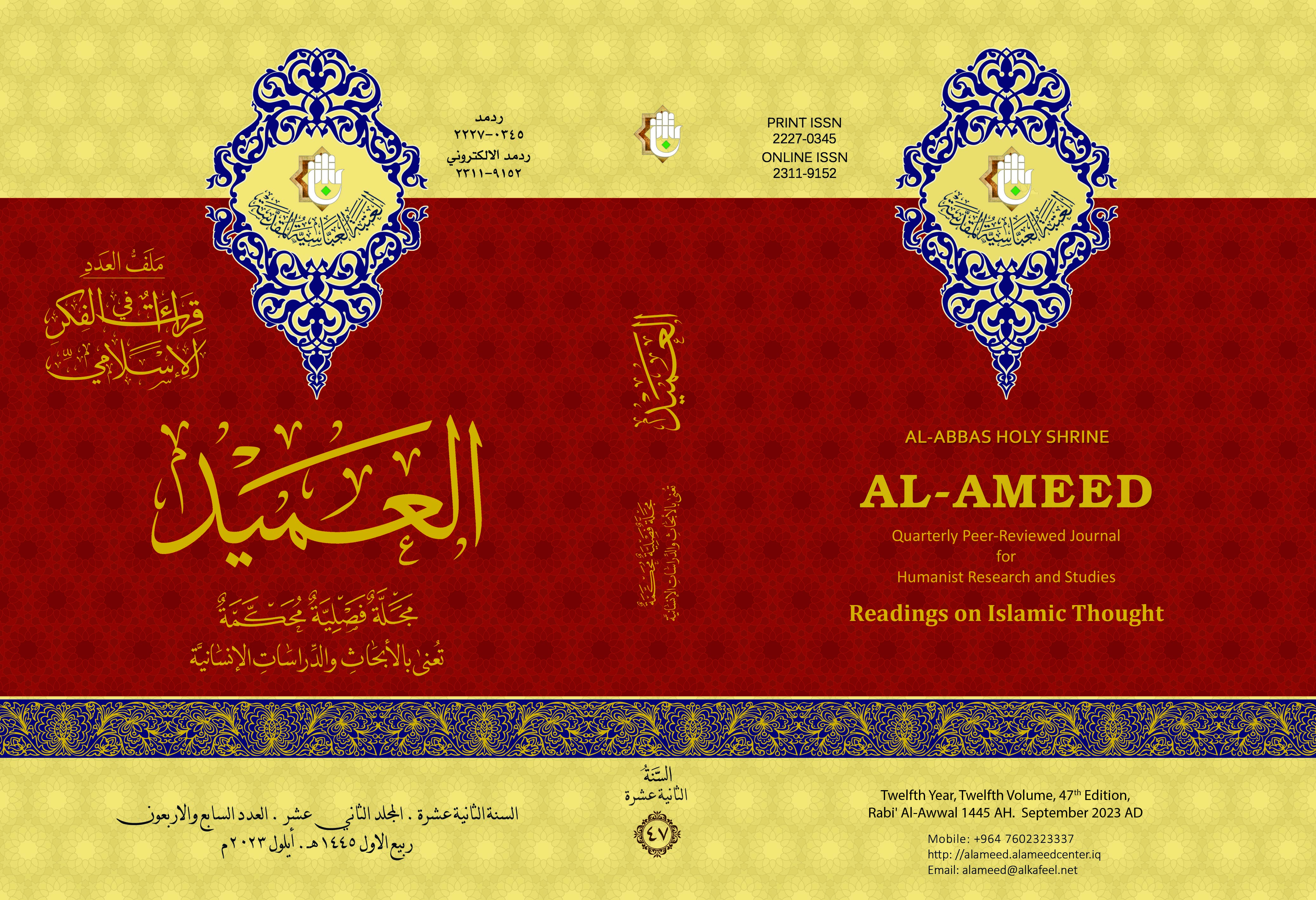Abstract
To study "resolution" is considered as one of the important
topics in legal rules of the faqah fundamentals
science, less researched at the level of fundamentalist
studies at the present time. Although it is one of the subjects
on which the legal rules are based, as the resolution
of the fundamentalists comes in line with the meaning
of deciding something. For the resolution there are two
types, one of them is methodological: it is to expose the
reality in the view of the resolution doer, and the other
is objective: it is a part of the decision. The difference
between them is that the resolved issue that is decided
methodologically is attached to all its mental, legal and
customary effects t, while the objective resolution could
be considered a subject or a condition in a case
topics in legal rules of the faqah fundamentals
science, less researched at the level of fundamentalist
studies at the present time. Although it is one of the subjects
on which the legal rules are based, as the resolution
of the fundamentalists comes in line with the meaning
of deciding something. For the resolution there are two
types, one of them is methodological: it is to expose the
reality in the view of the resolution doer, and the other
is objective: it is a part of the decision. The difference
between them is that the resolved issue that is decided
methodologically is attached to all its mental, legal and
customary effects t, while the objective resolution could
be considered a subject or a condition in a case
Keywords
etymology
Muhammed Jawad Mughniyeh
resolution
The legal rules
utterances.
Abstract
يُعد مبحث القطع أحد المباحث المهمة من مباحث الاحكام
الشرعية في علم أصول الفقه، والتي يقل البحثُ فيها على صعيد
الدراسات الأصولية في وقتنا الحاضر، مع انها من المباحث التي
تُبتنى عليها الاحكام الشرعية، إذ إن القطع عند الاصوليين يسري
معناه مع معنى الجزم بالشيء، وللقطعِ نوعان أحدهما طريقي:
وهو الكاشف الذي يكشف عن الواقع في نظر القاطع، والآخر
موضوعي: وهو ما كان دخياً في الحُكم، والفرقُ بينهما هو أن
الشيء المقطوع في القطع الطريقي تلحقهُ وتترتب عليه جميع
آثاره العقلية و الشرعية و العرفية، أما القطع الموضوعي فيُمكن
اعتبارهُ موضوعاً أو قيداً في حالٍ دون حالٍ آخر
الشرعية في علم أصول الفقه، والتي يقل البحثُ فيها على صعيد
الدراسات الأصولية في وقتنا الحاضر، مع انها من المباحث التي
تُبتنى عليها الاحكام الشرعية، إذ إن القطع عند الاصوليين يسري
معناه مع معنى الجزم بالشيء، وللقطعِ نوعان أحدهما طريقي:
وهو الكاشف الذي يكشف عن الواقع في نظر القاطع، والآخر
موضوعي: وهو ما كان دخياً في الحُكم، والفرقُ بينهما هو أن
الشيء المقطوع في القطع الطريقي تلحقهُ وتترتب عليه جميع
آثاره العقلية و الشرعية و العرفية، أما القطع الموضوعي فيُمكن
اعتبارهُ موضوعاً أو قيداً في حالٍ دون حالٍ آخر
Keywords
محمد جواد مغنية، الحكم الشرعي، القطع، علم الاصول، الالفاظ.
